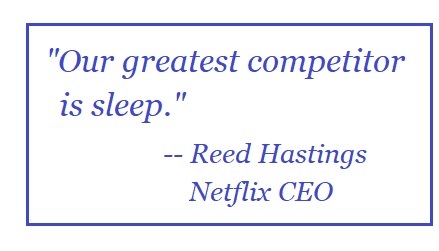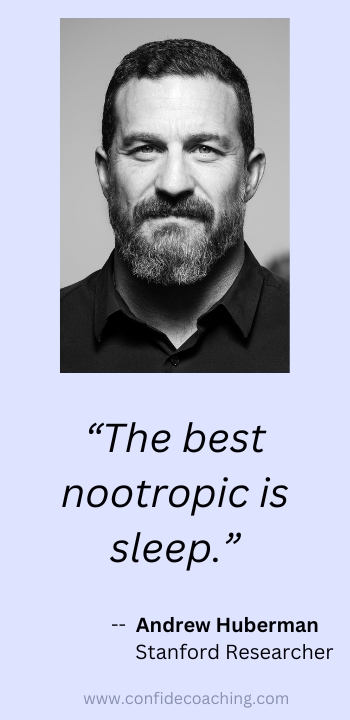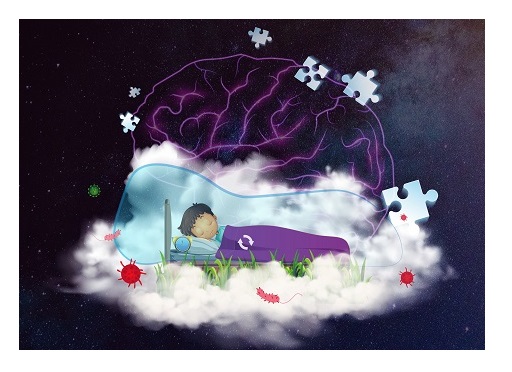
Do you view sleep as a luxury?
It’s not surprising that people tend to be cavalier about their sleeping habits. After all, you have to compromise it for an exciting night out or to pull an all-nighter. But, in a world where self-help books about sleep are international bestsellers, it’s clear some things have gone awry in the land of nod. For every person who struggles with insomnia, there’s another who views getting some shuteye as a luxury instead of a basic need.
 Where once our slumber filled the dark, idle hours between dusk and dawn, it’s now somewhat regarded as a waste of precious time. As the CEO of Netflix once admitted, “Our biggest competitor is sleep.” No matter your reasons for not getting your recommended hours per night, sleep should be a priority. In fact, it’s one of the most beneficial things you can do for your physical and mental health.
Where once our slumber filled the dark, idle hours between dusk and dawn, it’s now somewhat regarded as a waste of precious time. As the CEO of Netflix once admitted, “Our biggest competitor is sleep.” No matter your reasons for not getting your recommended hours per night, sleep should be a priority. In fact, it’s one of the most beneficial things you can do for your physical and mental health.
Let’s get into the reasons why prioritizing pillow time should be your number one priority.
1. Poor sleeping habits can be detrimental to your physical wellbeing
The more scientists and health practitioners discover about the slumbering brain, the more they appreciate how important sleep actually is for your wellbeing. Sleep is critical for the health of your body and mind. Consequently, sleep deprivation severely impacts your physical health and puts you at risk of serious medical conditions, including obesity, heart disease, stroke, and diabetes.
Plus, chronic sleep loss can significantly shorten your life expectancy. One Harvard study suggests that getting five hours or less of sleep consistently can increase your risk of mortality by as much as 15 percent. So, getting the right amount of sleep will keep you healthy.

Coaching Tip from Paul
While I generally recommend reducing the use of technology to live a better life, the proper use of devices as life-improvement tools cannot be disregarded. My wife and I both use Fitbits, not only to measure our physical activity, but also our quality of sleep. Tracking habits the night before (like what time we ate dinner or whether or not we drank alcohol) and paying attention to correlations in sleep quality has been a real game changer for both of us.
2. Improved mental functioning
Sleep is essential for optimal cognitive performance, especially memory retention. If you’re not getting 7 to 9 hours daily, your mental functioning on a range of tasks suffers. Long-term sleep deprivation can hinder you from thinking clearly and hurt your performance at work.
By the same token, sleeping more than usual enhances cognitive performance. In this regard, sleep is more than a little downtime; it’s vital to your intellectual and creative performance. Plus, it reduces the life-threatening dangers from drowsy driving or lack of concentration when operating heavy machinery since you’ll be able to make better decisions quicker.

3. Optimizing the immune system
In the same way good sleep helps the brain consolidate learning and memory, it also strengthens immune system memory. People who don’t get adequate sleep are more prone to getting sick after being exposed to disease-causing organisms like viruses. Besides that, they take longer to recover because their body lacks adequate protective cytokines.
The relationship between sleep and immune function is bidirectional. Immune response affects sleep patterns, and consistent sleep strengthens the immune system.
4. Enhanced metabolism
If your body is fatigued, your brain responds by slowing down your metabolism to conserve energy. Chronic sleep loss also disrupts the functioning of the hormonal system by altering glucose metabolism. As a result, you might suffer from high blood glucose levels, increased insulin levels, and higher levels of the stress hormone cortisol.
All these factors also impact your hunger levels which is why you find yourself reaching for high-calorie carbohydrates throughout the day after a restless night. And this is how lack of enough sleep results in weight gain. It’s also important to note that too much cortisol endangers cardiovascular health.

Real World Example
“Developing a ‘wind-down’ routine at night was awkward at first. I drank chamomile instead of chardonnay, picked up a novel instead of Netflix. I started feeling sharper at work and didn’t get into my old mid-afternoon energy slump. A simple shift of my evening routine has made my waking hours way more productive and enjoyable. I’m in a better overall mood!”
— Brittany F., Marketing Consultant
5. Improve your emotional wellbeing
You know how cranky young kids get after a rough night of tossing and turning. As it turns out, adults aren’t much better at handling poor sleep. Due to hormonal imbalances, you’ll find yourself stressed and unable to relax even when your head hits the pillow.
A continuous lack of sleep also increases the intensity of negative thoughts and emotions, leading to depression and anxiety in the long run. Sleep nourishes your brain and helps it function better. It also does the same for your mood and overall wellbeing. Getting enough sleep might just be the thing you need to feel better and happier.
Inside The Sleeper’s Brain
 Understandably, sleep doesn’t come easy to everyone. Some people even need sleep aids to get adequate rest. So, here are some tips that can help improve the quality of your sleep.
Understandably, sleep doesn’t come easy to everyone. Some people even need sleep aids to get adequate rest. So, here are some tips that can help improve the quality of your sleep.
- Avoid overworking. If you’re overworked, your body is in a continuous flight or fight response due to increased cortisol levels which leaves you exhausted and at risk of serious illness
- Exercise to improve sleep patterns and quality
- Avoid technology and blue light, which disrupt your bodies circadian rhythm
- Stick to consistent sleep times and establish a bedtime routine
- Try meditation
- Improve your diet and avoid caffeine, nicotine, and alcohol
- Get some sunshine and vitamin D
- Do NOT take melatonin without a doctor’s advice. The vast majority of people are not deficient.
Deep sleep is important for forming and retaining memories. It enhances all cognitive functions, so you’re able to be more productive and creative while making fewer mistakes. So, it’s important to start addressing your sleep issues before they impact your long-term health.
p.s. – Are you having a hard time forming the habits to get a better night’s slumber? Book a free appointment with me where we’ll have a casual conversation by phone to see if we’re a fit for working together.

Paul Strobl, MBA, CPC
Owner of Confide Coaching, LLC
Paul is a Master Life Coach for individuals, executives and business owners. Originally from Houston, Texas, he has been location independent for most of his adult life. He currently resides in the Rhodope Mountains of Bulgaria near the Greek border with his brilliant wife, 13-year-old stepson (officially adopted in 2021!) and a Posavac Hound rescue.

